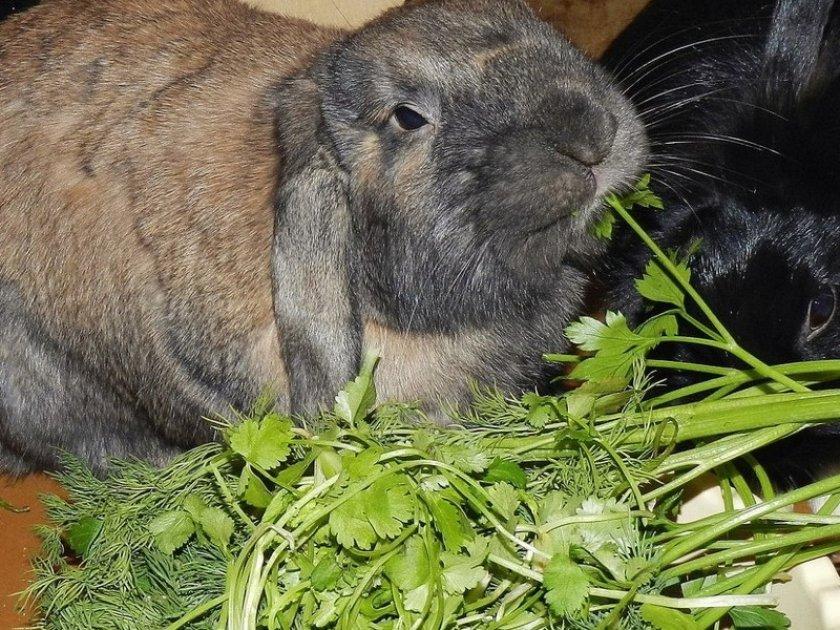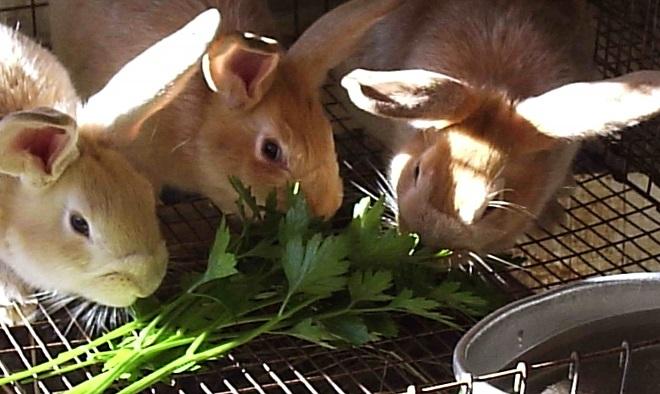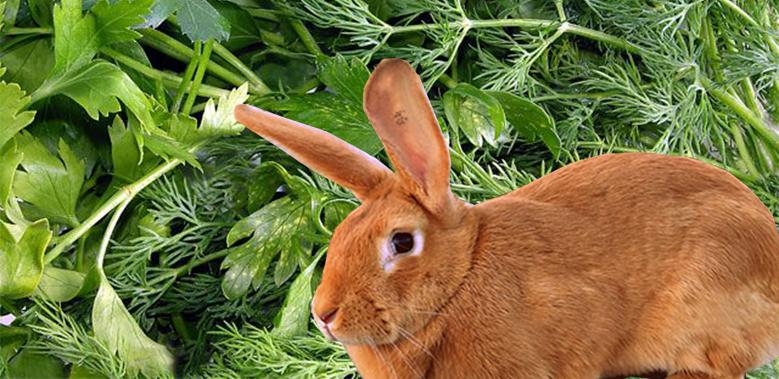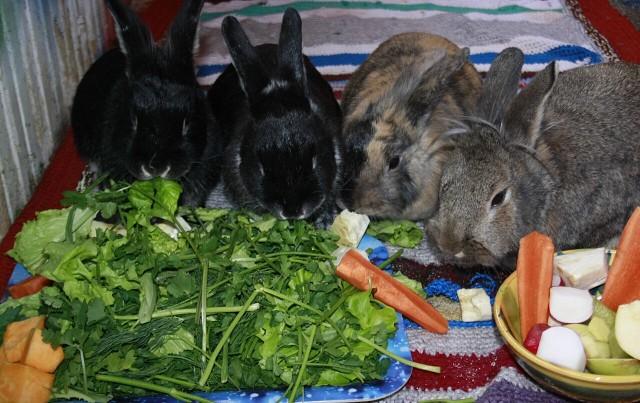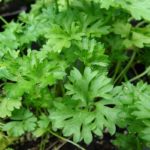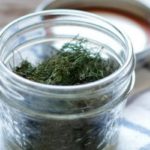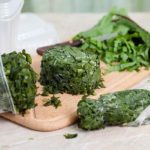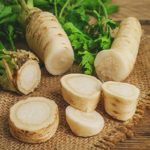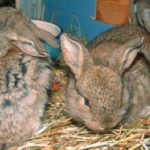Whether it is possible to give rabbits aromatic parsley and dill, each owner decides for himself. In disputes on this matter, experts have broken many copies. Some say that greens have too strong a smell and a bitter taste, while others convince others of the extraordinary value of herbs. As always, the truth is out there somewhere. Spicy herbs have beneficial properties for animals, but they must be used very carefully.
Is it possible to give parsley and dill to rabbits?
You can talk endlessly about the benefits of parsley.Thanks to its anti-inflammatory properties, it protects pets from gastrointestinal diseases. Parsley boasts a large amount of fiber, which means that this healthy supplement contributes to the animal’s normal digestion. The luteolin contained in the plant protects the rabbit's intestines from inflammation.
Dill uninterruptedly supplies the fluffy beauties with the substances necessary for a full life. The composition of lace greens includes:
- phosphorus;
- manganese;
- iron;
- cellulose;
- zinc;
- vitamins B and C;
- folic acid.
Due to the calcium content, the plant has a beneficial effect on the animal’s skeletal system. Along with parsley, dill is famous for its record amount of essential oils. Aromatic substances play the role of a reliable barrier to fungal infections and microbes.
Thanks to its unique chemical composition, dill has a positive effect on your pet’s cardiovascular system. Spicy herb helps to avoid the eternal problem of urolithiasis in rabbits, and also removes salt from the animal’s body. Lacy leaves help strengthen the walls of the animal’s blood vessels.
Dill brings invaluable benefits to nursing females. The plant helps to increase lactation in animals. Farmers know what a problem a rabbit's lack of milk can be. Thanks to disinfectants properties of dill Helps avoid inflammation of the pet's oral cavity. The plant successfully fights swelling and irritation, so greens are indispensable for rabbits prone to allergic reactions.
Despite the obvious benefits of plants for animal health, grass is given to furry pets in small portions. Excess vitamins can be a threat to your pet's life. In addition, the animal may be intolerant to aromatic greens.Dill and parsley are introduced into the rabbit’s diet gradually, starting with a small amount of leaves.
Some experts avoid using herbs in the diet of rabbits. It is believed that the bitter taste and strong aroma of dill are bad for your pet's taste buds. The majority of scientists do not share these concerns and still recommend including greens in the animal’s daily diet.
Ordinary
Dill and parsley are a real vitamin bomb for furry pets. It will benefit not only representatives of famous breeds, but also ordinary rabbits. Of course, grass cannot serve as a complete nutrition for pets, but it is irreplaceable as a healthy supplement. Just 1-2 sprigs of spicy herbs a day will help strengthen the animal’s immunity and enrich the animal’s body with useful microelements.
Decorative
Ornamental animals can be offered a sprig of dill or parsley. Little beauties also need additional vitamins and minerals. However, the portion of grass for them should be 2 times less than for representatives of broiler breeds. Treat pets no more than 2 times a week.
Rules and regulations of feeding
Spicy herbs contain essential oils, so when freshly picked they are not suitable for feeding pets. The pungent smell of dill and parsley can cause deterioration in the well-being of animals. Before use, the greens are slightly dried in a place protected from bright sun. It is convenient to process greenery on an open veranda or in a secluded place, under a canopy.
You should not feed your pet a large amount of greens. Spicy herbs are introduced into the animal’s diet gradually.At first, the pet is given 1 small sprig of dill or parsley, and then the condition of the rabbit is carefully observed.
Rabbits are accustomed to fragrant twigs no earlier than 4 months of age. For greater effect, the herb is mixed with plants familiar to the pet. The greens go well with dandelion leaves, burdock and nettle.
Wet grass provokes intestinal upset in animals, so a healthy bouquet is made in dry weather. Do not pick leaves that are wet with drops of dew or rain. Thrifty owners prepare fragrant greens for future use. Rabbits willingly eat spicy twigs in dry form. The chemical composition of dried herbs differs little from fresh herbs. They preserve valuable vitamins and other essential substances.
To prepare dry stock, bunches of dill and parsley are dried under a canopy, in a shady and ventilated place. Paper bags are suitable for storing such greens.
What products can be combined with?
Fragrant twigs are successfully combined with peas, mixed feed, and a grain mixture of oats, corn and barley. The list of acceptable products is wide, but you should beware of concentrated feeds with a high content of nitrogenous substances. This combination of ingredients can upset the rabbit's digestive system.
Possible harm
Spicy greens are given to pets only in small quantities. Excessive treats will inevitably lead animals to such unpleasant consequences as diarrhea and bloating.
When collecting parsley or dill, you need to carefully select only the best branches. Due to the inattention of the owner, dope, celandine, tobacco or black root may be included in the fragrant bouquet. These plants are poisonous to rabbits. At best, the pet will have to suffer from intestinal upset. If circumstances go wrong, the animal may die.
Greens are dangerous for little rabbits. The stomachs of newborn animals are not suitable for digesting complex food. It is possible to accustom babies to fragrant grass only 4-5 months after birth.

